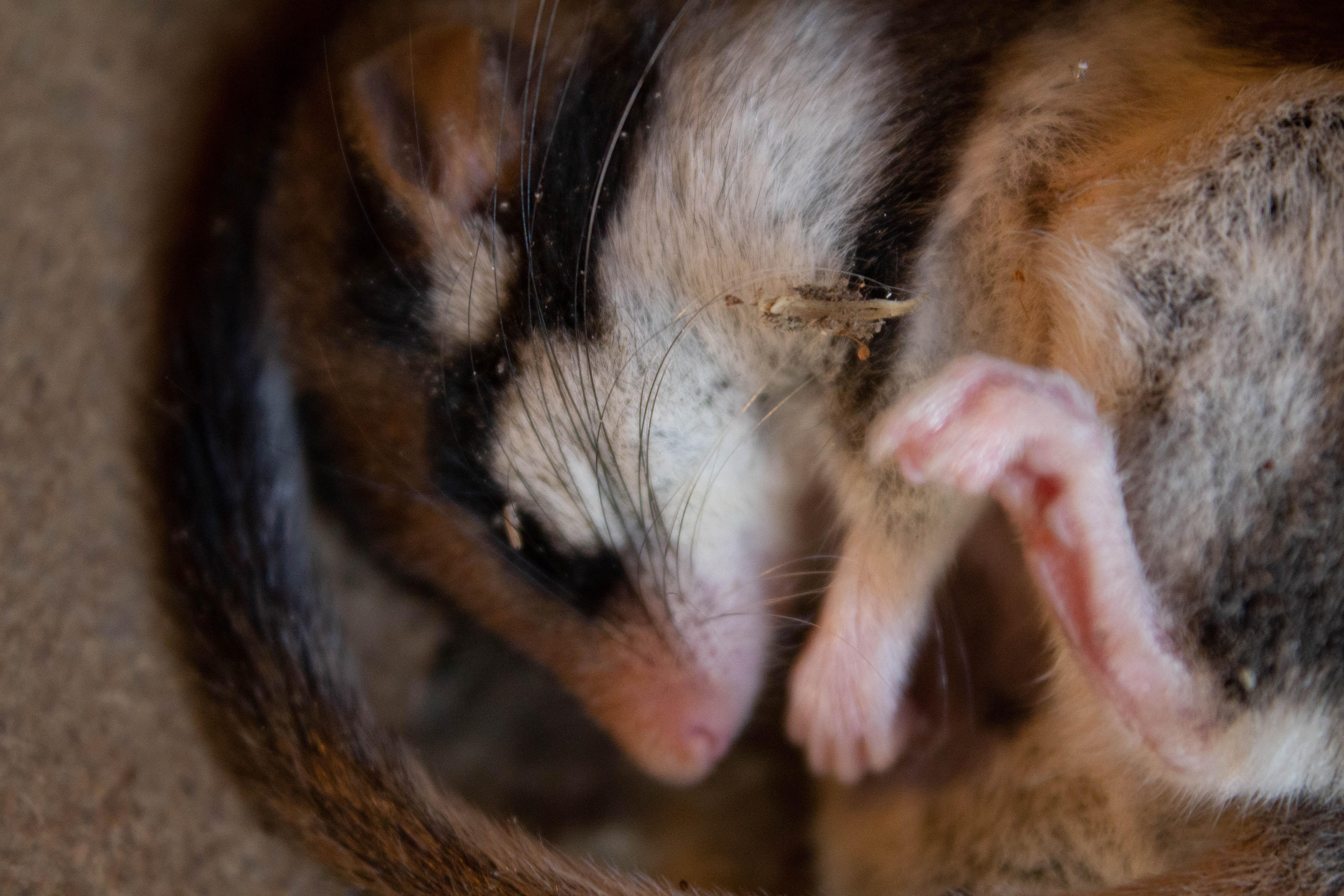What Are They?
Possum or Opossum? The white-faced animal playing dead around your house or business is the common opossum. It is a nocturnal marsupial that scavenges for its food. From carrion to fruit and seeds, opossums take what they can get. However, they prefer to eat snails, beetles, and more common pests. Their diet also includes lots and lots of ticks, preventing the spread of Lyme disease, so they aren’t complete nuisances.
They do breed twice a year, once in January/February and again June/July. After about 4 months, the babies will be leaving Mom for good. You may notice more opossums around this time, but they aren’t a threat unless provoked. They can be dangerous due to the diseases they carry. However, as long as you and any pets keep your distance, you should be fine.
When Should I Worry about Them?
While opossums may wander into you home any time during the year, they are more likely to do so in the winter. Opossums don’t hibernate nor do they put on a lot of extra body fat which makes finding a warm place important. They typically make their nests in abandoned dens or burrows. If there’s not one nearby, your house looks more and more appealing.
How Do I Know if I Have One in my House?
Short of seeing the animal itself in your home, most signs can be ambiguous or easily confused with other pests like mice or rats. There are few that are more specific to them if you’re paying attention.
Dinner Leftovers – Opossums tend to be messy eaters, especially when they’re eating overripe fruit on the ground. If you are consistently finding fruit remains or pet food that’s gone missing, an opossum may be doing more than just wandering through your backyard.
Tracks – If you keep a close eye out, you may notice footprints wandering through your garden or across your deck. You can tell if they belong to an opossum since their hind feet have opposable thumbs. If you see tracks, each with five toes and one set looking like a weird hand, then you may have been visited by an opossum!
Hissing or Other Noises – Most people associate opossums with hissing, but they can produce several other unique calls. Adults click during mating season. Moms smack their lips to call their babies. And babies make a sneezing sound to get their parent’s attention. Especially if these noises are coming from within your home, there may be an opossum and her pups nesting.
Foul Smell – Opossums are not clean animals. And when playing dead, they can produce an awful smell similar to a real dead animal. If it smells like something has died in your walls, it’s either an opossum or something equally horrifying. Either way, call us immediately.
Can I Treat This Myself?
If a lone opossum accidentally wandered into your house, you can try to encourage it back outside with some wet cat food. Closing all doors except one that leads outside is another way to get it outside. But if it has found food in your kitchen or garage, it may not go quickly or quietly.
Do I Actually Need to Call Someone?
Anyone can buy a trap and deal with an opossum themselves if they are really determined. However, we highly recommend calling in an experienced team like ours to deal with a problem like this. If you have young children or pets in your home, you may not have the time to wait until it leaves or a trap springs. Opossums in your home have serious risks!
They can carry some nasty diseases like toxoplasmosis, Chagas disease, relapsing fever and more. Most of these are not pleasant and require medical treatment right away. And the ticks, mites, and fleas on them also come with their own number of diseases and parasites. Don’t take the chance and wait on the opossum. Call us immediately.
Don’t You Control Bugs? Not Opossums?
While we are known as Humboldt Termite & Pest, our team has plenty of experience dealing with opossums and other wildlife. We will provide you with a number of solutions to quickly trap and remove any opossums in your home without further disrupting your life. If you are concerned about an animal having already moved into your home, here’s what our inspection and following process will look like.
Step 1: Identification – First, our technicians will visit your home and thoroughly examine the evidence to determine whether or not you have an opossum living in your walls or attic. If we find an opossum or any other pest infestation, we will provide you with a variety of options in proceeding.
Step 2: Treatment – Once you’ve made a decision, our team will work to safely remove the opossum from your home. Now if the critter entered your home through more nefarious means, we’ll work with you to clean up damage and make the proper repairs.
Step 3: Ongoing Prevention – After everything is cleaned up and the opossum has been appropriately dealt with, we’ll identify possible points of entry and help you prevent further infestations from taking place.
At Humboldt Termite & Pest, we are committed to providing the best solutions and service we possibly can. So rest easy. Don’t worry. We’re on the job.

